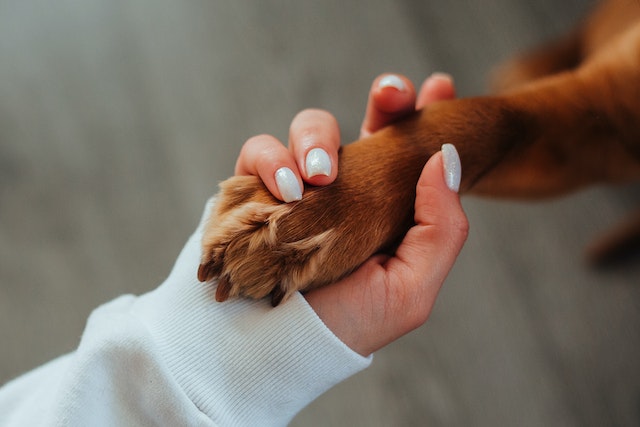The variety of methods people use to recover from an addiction is incredible, so this journey is unique for everyone. The journey of recovery from addiction usually consists of several steps and phases and may include days filled with loneliness, depression, but also anger, weakness, and even relapse. People use various bright spots in their lives to cope with these dark days, including everything they enjoy – spending time with people they like, doing sports, meditating, or starting a hobby. For others, spending time with a furry friend means so much more than having a pet. Animals can have a strong therapeutic effect on people practicing sobriety – especially for ones dealing with dark days and thoughts. Let’s go through the benefits of pet therapy in addiction recovery and see if you can find it useful for someone you love – or yourself.

1. The responsibility
One of the main reasons addicts step back is the lack of responsibility they feel the need to take care of, so they quickly give up on their sobriety path. Owning a pet makes their day more meaningful, as they feel responsible for the well-being of an innocent creature. That may seem insignificant to others, but such details can be crucial on critical days for an addict. Adopting a pet requires them to provide food and a place to call home and to be an emotional support to the animal as its owner. That’s why it’s essential to consider if you or your loved one is ready for such commitment so it doesn’t end with disappointment or neglect of the animal.
2. Building daily routine
Owning a pet comes with a set of daily responsibilities that rarely change. Whether you own a dog, cat, or guinea pig, they require feeding, sleep, and playtime. That is excellent in the addiction recovery process, as it builds daily habits that ensure you don’t break the routine. Pets thrive on a routine, and sticking to it every day will help them not break the sobriety cycle and always stay on track. If possible, try to build new habits you and your pet can do together, aside from the basic feed and playtime. Try regular morning or evening walks, socializing in a nearby park, and more. That will help you create new habits and get emotionally attached to your new friend. Make the most of your time together, and you’ll soon build healthy habits that will make no space for the bad ones.
Make healthy habits together.

3. Minimum stress
When there’s a pet around, you can also expect minimized stress. It’s one of the main benefits of pet therapy in addiction recovery, as spending time with an animal helps people release endorphins. The hormones of happiness help with brain and body recovery, which is essential when dealing with an addiction. Experts from Archstone Behavioral Health share that stress is the most common factor that causes relapse, so they recommend doing anything to prevent it as an essential step in addiction recovery. A pet will put you in a positive mood even when it’s not playtime – just being curled up on the couch will instantly improve your day.
4. Building self-worth
After successfully taking care of an animal, recovering addicts often rebuild their confidence and self-worth. Doing something right and seeing the results immediately (a wagging tail and those happy jumps) is an instant solution to low self-esteem. Animals pay us back with love and happiness, which can be a valuable contribution to your addiction recovery journey.
5. Feeling safe
A sense of safety is vital for some people who are overcoming addiction. For that reason, they need to surround themselves with people who love them but also work on feeling and being stronger on their own. Spending time with a pet can be incredibly useful in feeling safe and calm, as you’ll always have a supportive creature around you. Don’t forget that buying pet insurance will provide additional security, knowing your furry friend will be healthier and safer for longer. Animals react to unusual sounds and movements and can sense if you’re feeling down and react immediately. Consult a professional on what breed of dog or cat you should get, as they all differ in character and suit different people and lifestyles.
6. A new friend
Addiction and substance abuses are typical results of toxic relationships and an unsupportive environment. Pet therapy in addiction recovery is a way to get a new furry friend that will help you avoid people who trigger unhealthy choices. Spending more time with a lovable animal will spark positive interest in a healthy relationship and ensure you avoid everything that makes you relapse. Furthermore, changing the environment is a way to eliminate a bad routine and create healthy habits. Residential treatments provide support all day and, together with pet therapy, can give incredible, long-lasting results. Be sure to consult with an expert and choose a program to fit your needs to ensure lifetime results and minimum relapse possibility.
Friend for life – pet therapy in addiction recovery helps avoid toxic relationships.

Final words
With plenty of benefits of pet therapy in addiction recovery, there’s no reason to wait to get a new furry friend. Animals bring happiness to the world, and with a bit of care and emotions, they pay you back with unconditional love and care – and that’s all you need to get back on track after addiction recovery. A pet can be an incredible companion on this journey and support your progress every step of the way. They don’t hold your past against you and will provide you with only the positive feelings you need to make results in this project that can be challenging.
